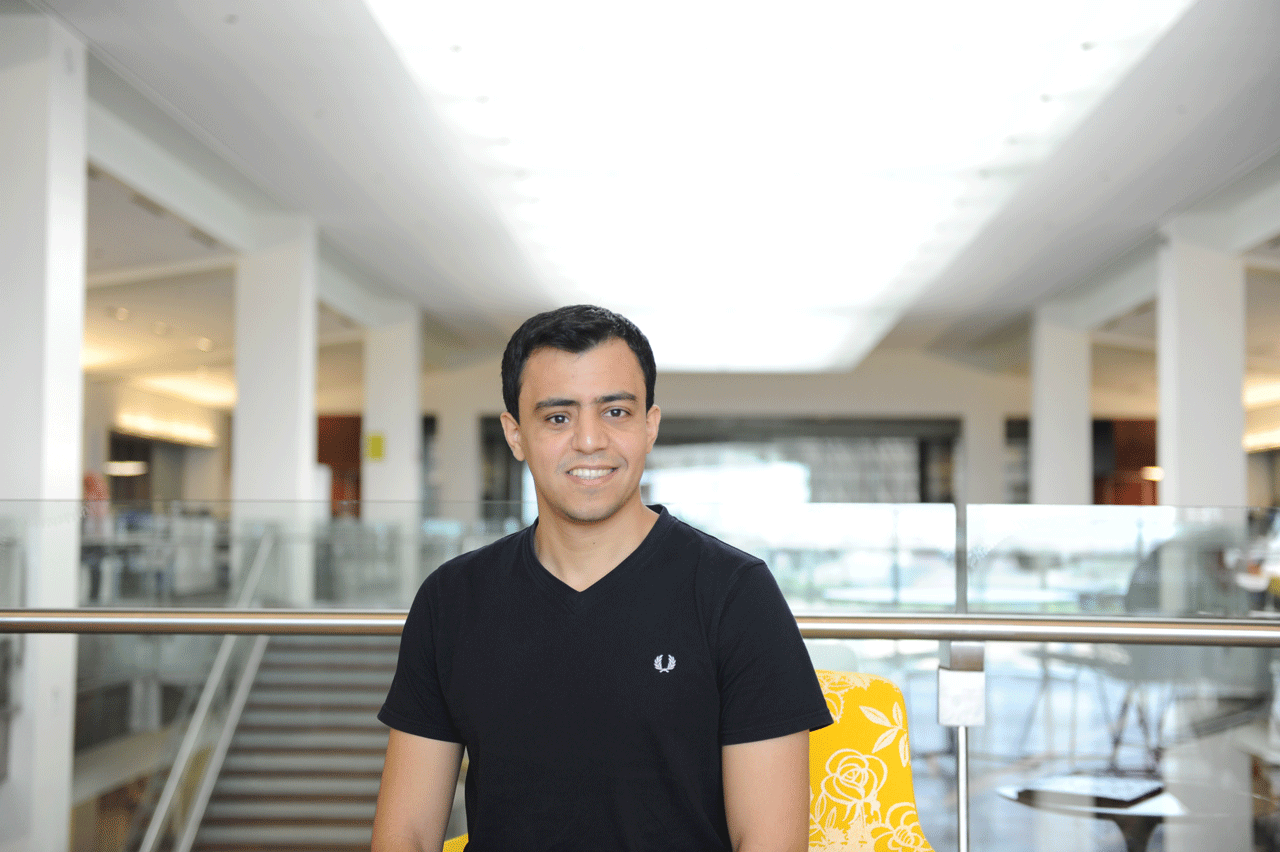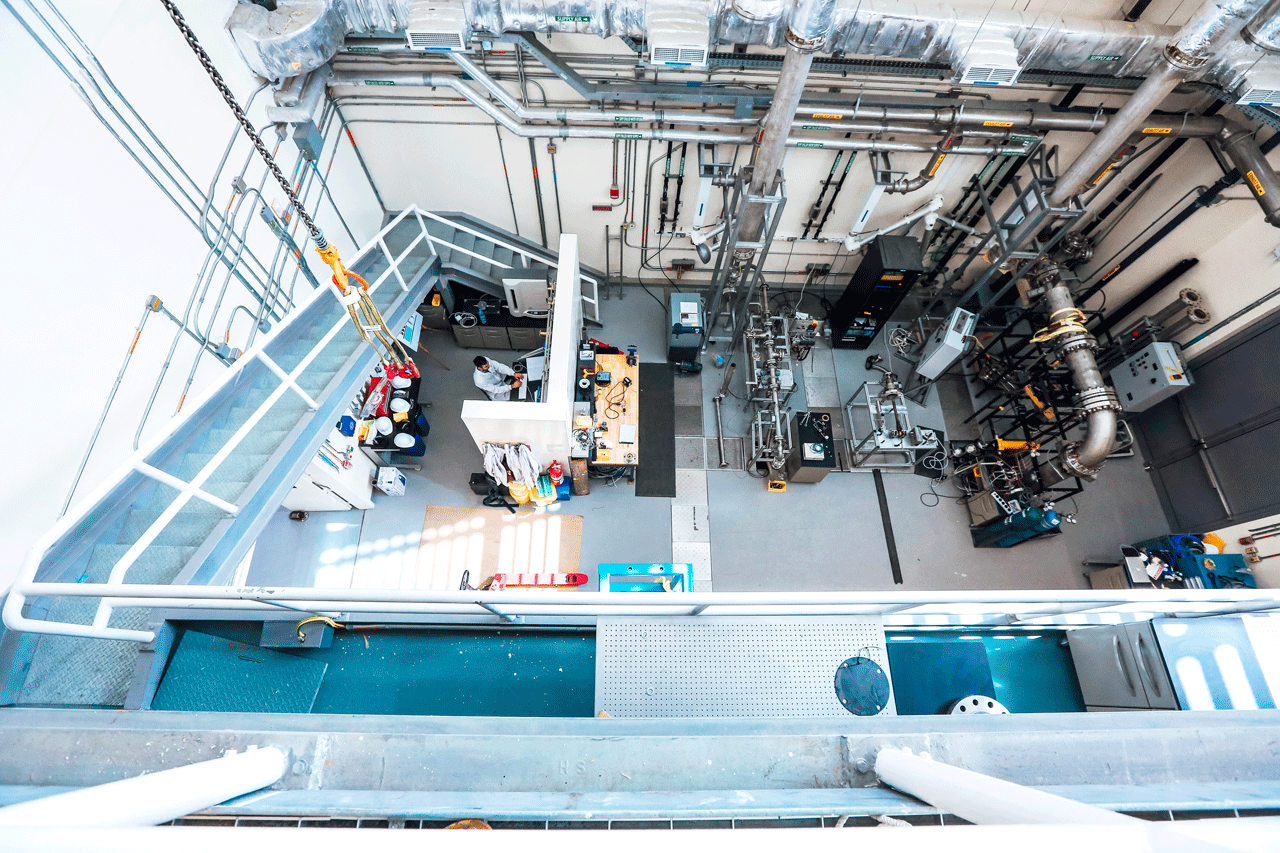Student Focus: Abdulrahman Abdullah Alkhateeb

Abdulrahman Alkhateeb received his master's degree in mechanical engineering from KAUST in 2014 and is currently a mechanical engineering Ph.D. student in the University's Clean Combustion Research Center. File photo.
By Abdullah Alhamdan, KAUST News
Abdulrahman Abdullah Alkhateeb, a native of Dammam in the Eastern Province of Saudi Arabia, received his master's degree in mechanical engineering from KAUST in 2014. He is currently a mechanical engineering Ph.D. student in the University's Clean Combustion Research Center (CCRC) working under the supervision of William Roberts, the director of CCRC. Alkhateeb's research focuses on fuel combustion to examine the possibility of burning hydrogen-bearing materials to run gas turbines to generate electricity.
"I grew up in a family that believes in science and learning," Alkhateeb said. "We were always told at home that science can raise a home that has no foundation, while ignorance can destroy a home of glory and honor. When I was young, my father always told us that people can achieve much with hard work. After graduating from high school, I was selected to join Saudi Aramco's academic preparation program in 2007. A year later, Aramco offered me a scholarship to join the University of Birmingham to get my bachelor's degree in mechanical engineering."
"After getting my B.A., I went back to working with Aramco as an intern in the engineering operation area at the crude oil refining plant," Alkhateeb continued. "[During] the same year, I was nominated to continue my studies and to get my master's degree."

Abdulrahman Alkhateeb is currently a Ph.D. student in the University's Clean Combustion Research Center (center facility pictured here). Photo by Anastasia Khrenova.
Alkhateeb noted he had two main reasons for choosing KAUST: the vision shared between KAUST and Aramco in terms of supporting growth and development in the Kingdom—he wanted to be part of this vision; and the University's excellent reputation and the high academic levels it offers compared to other international universities. Because of the high quality facilities and laboratories at KAUST and its global scientific competencies, Alkhateeb felt the University would be a fertile environment for scientific research.
After completing his master's degree thesis, Aramco sent Alkhateeb to work at one of the company's most difficult and environmentally challenging plants, a crude oil production platform in the deserts of the Empty Quarter, or the Rub' al-Khali desert. One year later, Alkhateeb was again nominated by company management to complete his graduate studies. He decided to study for his Ph.D. in mechanical engineering at KAUST because of his previous experience on campus and his first-hand familiarity with the University's top-notch academic standards. He joined KAUST again to begin his Ph.D. in 2016.

KAUST Ph.D. student Abdulrahman Alkhateeb worked for some time at Saudi Aramco's facility in the Rub' al-Khali desert. Image courtesy of Shutterstock.
Alkhateeb is grateful for all the opportunities offered to him by KAUST. Thanks to KAUST, he noted, he has had the chance to conduct scientific experiments under the supervision of distinguished teaching staff, as well as the ability to be part of a high-level scientific community from around the world.
"These things make you proud, and [I'm] even more proud to have a world-class university right here at home," Alkhateeb said. "To my fellow students, I say, 'KAUST has a lot to offer—don't waste this opportunity.'"
Related stories:
-
KAUST master's degree student wins best poster award at Data Science Summer School
-
Ph.D. student represents KAUST and Saudi Arabia at the 2018 Chicago Forum on Global Cities
-
Isotope science and culture: highlights of the 2018 IsoEcol conference
-
Student Focus: Rayan Alamoudi
-
Student Focus: Ghada Ahmed

